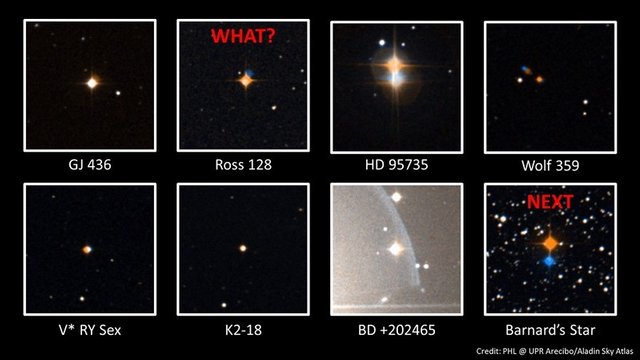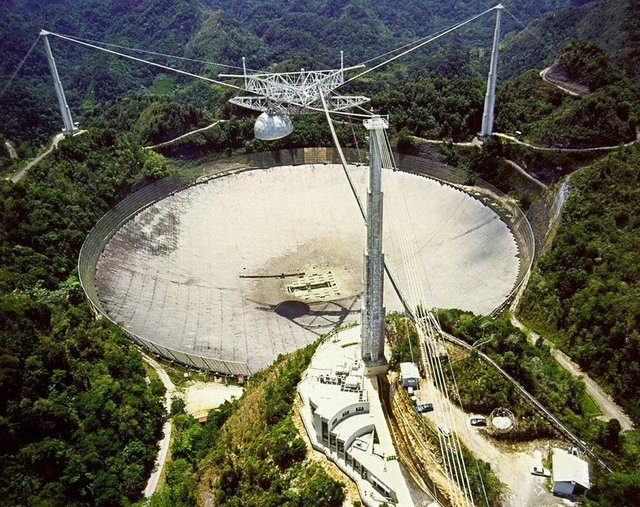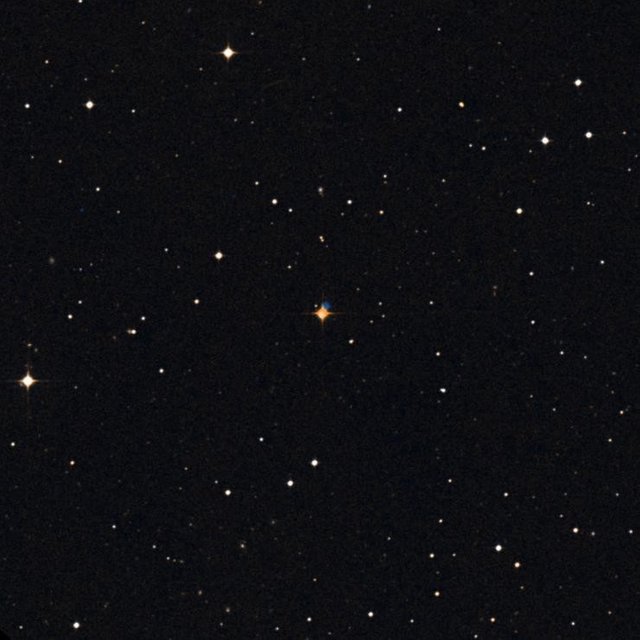In April and May radio astronomers from Arecibo Observatory conducted a scientific campaign to observe red dwarf with planets. They are exploring radiation and magnetic environment around selected stars and new evidences of new substellar objects including planets.

Image: PHL UPR Arecibo / Aladin Sky Atlas
Of these star only Gliese 436 and K2-18 are known to have planets. Two weeks after these observations, astronomers realized that there were some unusual signals in the 10-minute dynamic spectrum, obtained from Ross 128. Red dwarf Ross 128 is 12th closest to the Sun star - it is located 10.89 light-years (3.34 parsecs) away.
The origin of these signals is yet unknown. There are three possible explanations but each of them has significant flaws:
The source is star itself - emissions similar to Type II solar flares
Emissions from another object in the field of view of Ross 128
Burst from a high (Earth's) orbit satellite. For low orbit satellites signal was too long - during this time low orbit satellite would move out of field of view.
On the other hand: solar flares of Type II are usually detected at lower frequencies; There were no other objects near to Ross 128 during observations; signal's signature is too unlike satellite's transmissions.

Image: Arecibo
Astronomers do not want to create any sensations and specially bote that:
the recurrent aliens hypothesis is at the bottom of many other better explanations
Available informations says that Ross 128 is not the best place for life. It is classified as an active flare star since it can undergo unpredictable and dramatic increases in luminosity for a period of several minutes. Also it is very old star - this means that it has low metallicity (low levels of the elememts other than hydrogen and helium).

Image: Aladin Sky Atlas
Sunday, July 16 astronomers obtained additional time to observe Ross 128 to clarify the origin of its radio emissions. Results from this observations will be presented later next week.
You've been UpVoted via the UpVote Experiment 002 Bot. Depending on my VP & the price of STEEM you should get a $.01-$.03 for your trouble.
Read more about this experiment here.
Thank You - @blueorgy
Downvoting a post can decrease pending rewards and make it less visible. Common reasons:
Submit